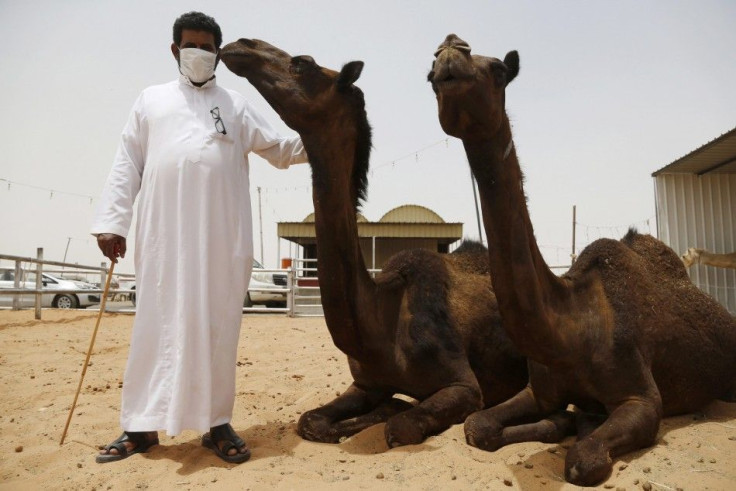Study Confirms Camels as MERS-CoV Source of Infection

A new study published in the New England Journal of Medicine has identified that the source of infection of the widening Middle East Respiratory Syndrome (MERS) virus are the camels in the kingdom.
Researchers studied the case of a Saudi man who became infected with and died of the new virus. Before getting sick, it was found that the 44-year-old man from Jeddah, Saudi Arabia kept a herd of nine camels.
One of the animals got sick and he tended to them.
"The patient had applied a topical medicine in the nose of one of the ill camels seven days before onset of the patient's illness," the team of scientists from King Abdulaziz University in Jeddah said. They learned four of the man's camels had been sick with nasal discharge
This happened seven days before MERS-CoV struck down the man. The previously healthy Saudi man, hospitalised on Nov 3, eventually died of MERS on Nov 18, 2013.
Researchers then studied and monitored the samples from his camels (nasal, blood, milk, urine, rectal) as well as the nasal swabs collected from the patient. They found that their genomes were identical.
"These data suggest that this fatal case of human Mers -CoV infection was transmitted through close contact with an infected camel," the study said.
"This is a further strengthening of the case for camels being an immediate source of human MERS infection," Reuters quoted Ian Jones, a professor of virology at Britain's University of Reading.
Dr Marc Siegel, an infectious disease expert and an associate professor of medicine at NYU Langone Medical Center in New York City, said the study confirmed their suspicions.
"It's been believed that the source of MERS is the camel, but has really not been proven, until now."
"Camels are the Typhoid Mary of MERS," HealthDay News quoted Siegel. "It is clear, however, that camel-to-human transmission started this thing."
W. Ian Lipkin, director of the Center for Infection and Immunity at Columbia University in New York, told AFP the challenge now is to determine the extent to which camels or other animals contribute to outbreaks of the human disease.





















